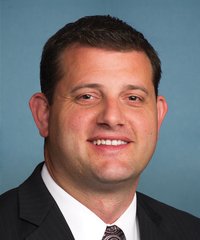
Congressman David G. Valadao was born and raised in Hanford, California in the center of the agriculturally rich Twenty-First Congressional District. As a lifelong resident of the Central Valley, he has been active in agriculture and dairy industry groups, as well as many local charities.
Today, the United States faces an unprecedented fiscal crisis. The solution to this crisis lies in reining in and better prioritizing of government spending, not raising taxes.
Our tax code has not been reformed in over thirty years and, as a result, middle class Americans throughout the nation are struggling. This is especially evident in the Central Valley, where, unemployment levels are double the national average and far too many families live paycheck to paycheck. By creating a simpler and fairer tax code, we will create jobs, grow our economy, and increase the amount of money Central Valley workers take home.
Over the years, Republicans in the House of Representatives have proposed numerous ideas on how to improve our nation’s tax code. On November 2, 2017, Representative Kevin Brady (R-TX) combined those ideas in a comprehensive tax reform plan, H.R. 1, the Tax Cuts and Jobs Act. This legislation simplifies our tax code, lowers rates for individuals and families, eliminates loopholes for the wealthy, and encourages small businesses to grow and create jobs. While both the House and Senate passed tax reform bills, the bills passed were not identical and, thus, could not be signed into law by the President. When this happens, the House and Senate create a Conference Committee to reconcile differences between the two bills. The bill that results from this process is voted on by the House and Senate and, if passed, is sent to the President’s desk to be signed into law.
As Congress continues to advance tax reform legislation through the House and Senate, please know I will work to ensure any additional proposals will facilitate economic growth while also promoting the fiscal wellbeing of my constituents.